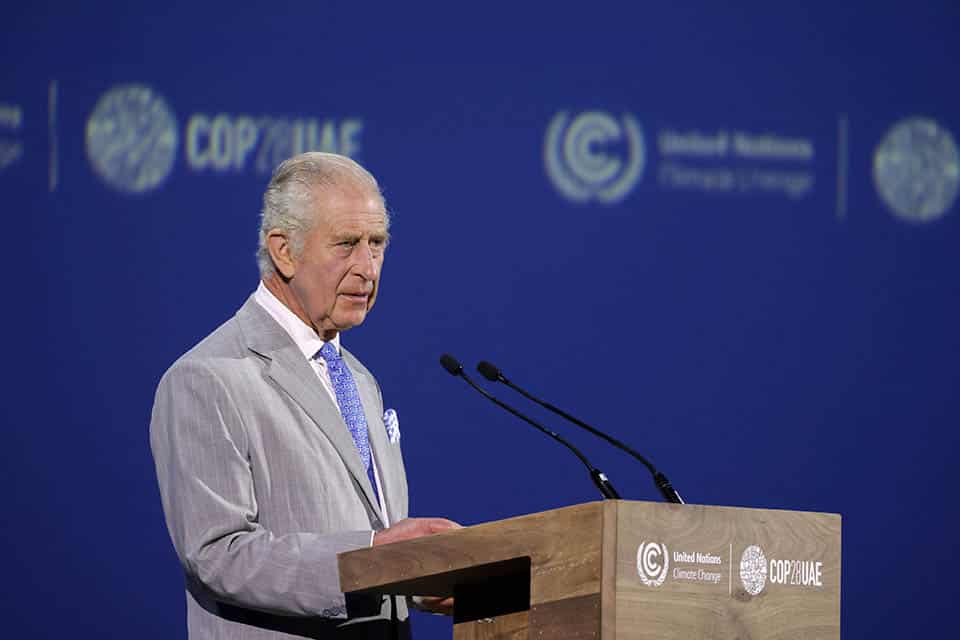December 1 was the first full day at COP28 and it was mostly devoted to rhetoric-heavy speeches from world leaders, except of course Joe Biden and Xi Jinping who decided not to come. Most used their three-minutes on generalities, with a few notable exceptions.
India’s prime minister, Narendra Modi, said his country wanted to host COP33 in five years and confirmed its commitment to tripling renewables capacity by 2030. But he could not resist a snipe at developed countries: “A small section of humanity has indiscriminately exploited nature but the whole of humanity has paid the price, especially the Global South.”
Brazil’s president, and host of COP30, Lula da Silva, highlighted the need for concrete steps to reduce socio-economic vulnerabilities in confronting climate change. He warned that governments are spending a fraction on climate compared to weapons.
“The planet is tired of climate agreements that are not fulfilled,” he said. He urged global action saying that “we have to do it and in a way that is urgent and fair.”
European Commission president, Ursula von der Leyen, said that the EU is on track to reduce emissions, including methane, and is committed to surpassing current goals. She also underlined the need to phase out fossil fuels.
Jordan’s King Abdullah II put the emphasis on the interplay between climate change and conflict, particularly in light of the escalating humanitarian crisis in Gaza. Egypt’s President Abdel Fattah el Sisi, added to this. He said COP28 is taking place against a backdrop of “grave political challenges that are no less dangerous than climate change”.
The UK’s King Charles warned that the world was “dreadfully far off-track” in delivering a sustainable future for the climate.
“The earth does not belong to us, we belong to the earth,” he said.
COP27 president, Sameh Shoukry, warned that “most of what we bring forward as tangible solutions and actionable commitments is based on speculation or well wishes.” He called for a “reality-check,” aiming it at rich nations.
But there were also important announcements on climate finance and food and agriculture. The president of COP28, Sultan Al Jaber, announced that the UAE will commit $30billion into a climate finance vehicle, aimed at improving the flow of money into projects to reduce emissions, and hoping that this could eventually unlock $250billion in climate investment globally.
“We all know that climate finance is not available, accessible or affordable enough. This is impacting lives and livelihoods across the Global South,” he said.
The role of food systems in the climate crisis is getting more attention than ever at COP28, especially as it is responsible for about one-third of global greenhouse gas emissions and global needs are rising – the world will need 60 per cent more food by 2050. In a historic development, UAE’s ‘Declaration on Sustainable Agriculture, Resilient Food Systems, and Climate Action’ was endorsed by 134 nations, recognising the link between global warming and food.
The United Arab Emirates and the ‘Bill&Melinda Gates Foundation’ announced $100million each to help small farmers adapt to climate change. More was pledged by the ‘the Bezos Earth Fund’ and the US.
The International Monetary Fund warned that “collectively, we are not cutting emissions fast-enough and are falling short on the needed investment, financing, and technology.”
What is becoming clear from the UN IPCC’s ‘Stocktake Report’ is that the odds of limiting global temperature rise to 1.5oC, are becoming exceedingly long. It is more likely than not that this limit will be breached. Being more honest about 1.5oC might help the public better understand the current state of warming and the real stakes of what comes next.
Even more serious progress is expected on Saturday. As the Financial Times put it, “Climate talks got under way and the world prays for more than hot air.”
‘Family’ photo of world leaders attending COP28







Click here to change your cookie preferences